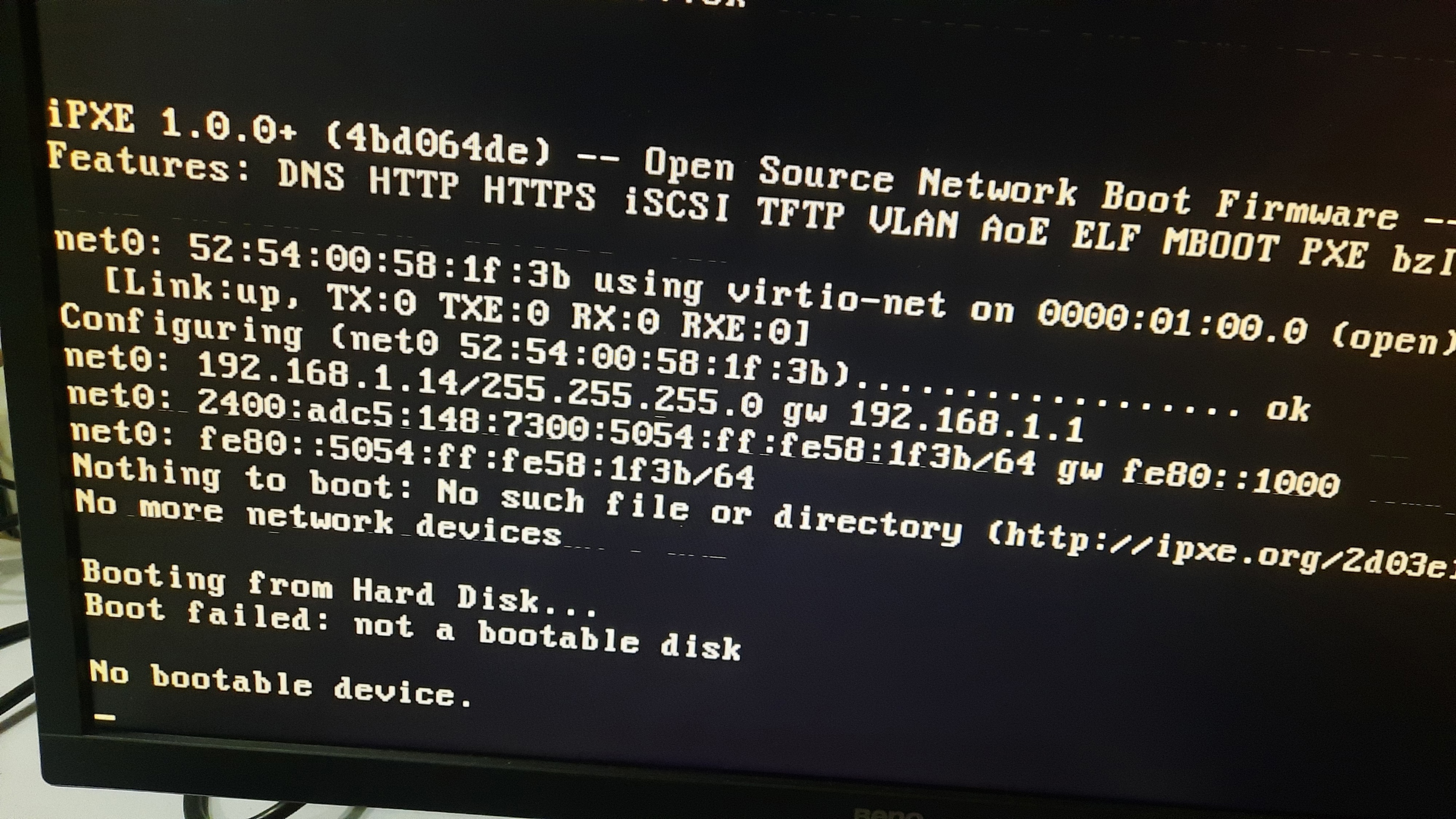pxeboot with dnsmasq as dhcp proxy for rockylinux
0
votes
0
answers
77
views
first, I installed apache & started its service

yum install httpd && systemctl enabled httpd --nowmount -o ro ~/Downloads/rockylinux9.iso /mnt/iso
cp -rv /mnt/iso/* /var/www/html/install-media/cp ~/kickstart-rockylinux9.cfg /var/www/html/install-media/kickstart/yum install tftp-server syslinuxmkdir -p /var/lib/tftpboot/{images,pxelinux.cfg}
cp /var/www/html/install-media/images/pxeboot/{vmlinuz,initrd.img} /var/lib/tftpboot/images/cp /usr/share/syslinux/{menu.c32,pxelinux.0} /var/lib/tftpboot/default menu.c32
prompt 0
timeout 300
ontimeout 2
menu title PXE Boot Menu
label 1
menu label ^1 - Install Rocky Linux 9
kernel images/vmlinuz
append initrd=images/initrd.img showopts method=http://192.168.1.254/install-media/ devfs=nomount ks=http://192.168.1.254/install-media/kickstart/kickstart-rockylinux9.cfg # cat /etc/dnsmasq.con
# Enable proxy DHCP for PXE
port=0
dhcp-range=192.168.1.0,proxy
# Specify PXE options
dhcp-boot=pxelinux.0,,192.168.1.254
enable-tftp
tftp-root=/var/lib/tftpboot# Generated by Anaconda 34.25.5.9
# Generated by pykickstart v3.32
#version=RHEL9
# Use graphical install
graphical
# Remove CDROM installation media line
# cdrom
# Specify the HTTP repository
repo --name="AppStream" --baseurl=http://192.168.1.254/install-media/
%addon com_redhat_kdump --disable
%end
# Keyboard layouts
keyboard --xlayouts='us'
# System language
lang en_US.UTF-8
# Network information
network --bootproto=dhcp --device=enp1s0 --noipv6 --activate
network --hostname=ks-sample2
# Packages to install
%packages
@^minimal-environment
%end
# Firstboot configuration
firstboot --enable
# Disk and partition configuration
ignoredisk --only-use=vda
clearpart --none --initlabel
part /boot --fstype="xfs" --ondisk=vda --size=1024
part pv.50 --fstype="lvmpv" --ondisk=vda --size=70655
volgroup rl --pesize=4096 pv.50
logvol swap --fstype="swap" --size=7167 --name=swap --vgname=rl
logvol / --fstype="xfs" --size=63484 --name=root --vgname=rl
Asked by Sollosa
(1993 rep)
Jan 21, 2025, 07:42 AM